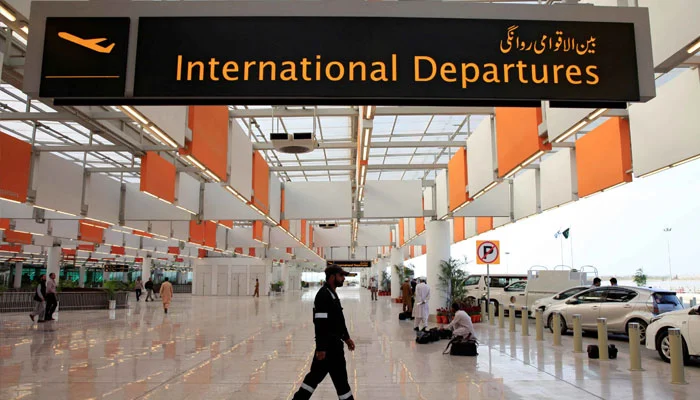By Mansoor Ahmed
Published in The News on July 23, 2025
LAHORE: Pakistan is witnessing an unprecedented brain drain, with the past two years recording a significant surge in migration of skilled labour in recent years. The phenomenon, long a concern for developing countries, has taken a deeply troubling turn here.
Tens of thousands of professionals, including doctors, engineers, IT specialists and teachers, are leaving in search of better prospects abroad. While remittances offer a cushion for the economy, the loss of intellectual capital presents long-term developmental risks.
Per news reports, in 2023, nearly 45,687 highly skilled professionals left Pakistan. This was not a one-off spike. Broader migration data shows that over 862,625 people left the country in 2023, up from 832,339 in 2022 — a steep rise from just 288,280 in 2021. These trends suggest that migration, particularly among the educated youth, is no longer seasonal or opportunistic — it has become structural.
The exodus includes thousands of university graduates (at least 90,000 per recent estimates), doctors (2,500), engineers (5,500) and accountants (6,500). Their departure reflects not only the lure of higher salaries and improved working conditions abroad, but also growing disillusionment with domestic opportunities, political instability and economic hardship.
The causes are deeply entrenched. Pakistan’s economy has been beset by persistent inflation, high unemployment, stagnant job creation and political volatility. Many highly trained professionals are unable to secure suitable or stable employment. A lack of meritocracy, limited career progression and daily uncertainty are often cited as key reasons for leaving.
On top of this, the country’s overburdened healthcare and education systems, weak research infrastructure, and limited access to global networks have compelled many of its brightest minds to seek stability and opportunity elsewhere.
Despite this bleak outlook, there is a financial upside. Remittances sent home by Pakistanis working abroad reached $23.8 billion between July 2023 and April 2024, and have since surpassed $38 billion for the fiscal year ending in June 2025. These inflows have played a vital role in supporting foreign exchange reserves and sustaining households grappling with rising living costs.
However, experts caution that while remittances offer short-term economic relief, they do not offset the long-term developmental cost of losing human capital. It’s akin to gaining cash but losing capacity.
The departure of skilled professionals deprives the economy of individuals who could contribute to national progress through innovation, public service, and entrepreneurship. Every doctor trained at a public institution who leaves Pakistan represents a taxpayer-funded investment that now benefits another country’s healthcare system.
The effects are already visible: overstretched hospitals, under-resourced schools and stalled technological progress. The healthcare sector, in particular, is grappling with rising patient loads and a shortage of skilled professionals.
In recent months, Pakistan has begun exploring ways to convert this trend into a “brain gain”. Initiatives such as the Special Technology Zones Authority (STZA), Roshan Digital Accounts, and diaspora engagement programmes by the Higher Education Commission aim to tap into the expertise, investments and global networks of overseas Pakistanis.
These initiatives are steps in the right direction, but their success hinges on political stability, credible governance, and an improved business environment. Overseas Pakistanis are unlikely to return or invest meaningfully unless they perceive Pakistan as a safe and opportunity-rich destination.
Pakistan’s brain drain is no longer a silent outflow — it is a resounding alarm demanding systemic reform. Retaining talent must become a national priority, underpinned by better education, job creation, merit-based governance and rule of law.
Unless bold and sustained efforts are made to tackle the root causes, Pakistan risks becoming a country that exports its brightest minds and imports the consequences — through weakened institutions, stalled innovation and diminished public services.
In today’s world, talent is the ultimate currency. Pakistan must ask itself: can it afford to keep losing its most valuable asset?





